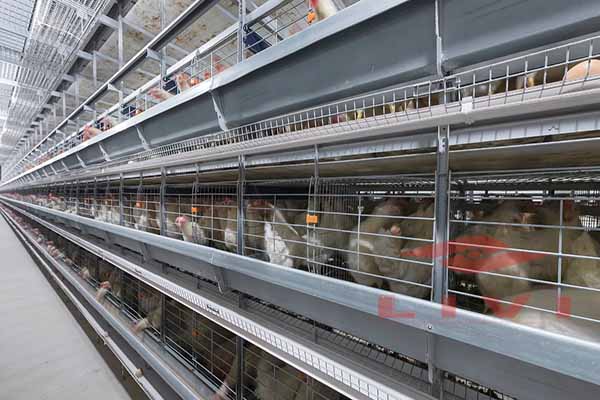How to Start a Chicken Farm Business: A Guide from Livi Machinery, Your Poultry Equipment Manufacturer from China
Time : 2025-07-25
Starting a chicken farm business can be an exciting venture, but it’s important to approach it with careful planning and knowledge. As a leading poultry equipment manufacturer from China, Livi Machinery is here to guide you through the process of starting your own chicken farm. In this article, we’ll cover everything from choosing the right location to selecting the best equipment for your farm.
1. Research and Planning
Before you dive into the world of chicken farming, it’s crucial to do your research. Here are some key steps to get you started:
1.1 Market Research
Understand the demand for chicken products in your area. Analyze the competition and identify your target market. This will help you determine the scale of your farm and the type of chickens you should raise.
1.2 Business Plan
Develop a comprehensive business plan that outlines your goals, budget, marketing strategy, and financial projections. This will serve as a roadmap for your chicken farm business.
2. Choosing the Right Location
The location of your chicken farm is crucial for its success. Consider the following factors:
2.1 Accessibility
Choose a location that is easily accessible to suppliers and customers. This will reduce transportation costs and ensure a steady supply of feed and market for your products.
2.2 Climate
Consider the climate of the area. Chickens are sensitive to extreme temperatures, so choose a location with a moderate climate.
2.3 Zoning Laws
Ensure that your chosen location complies with local zoning laws and regulations regarding agriculture and animal husbandry.
3. Selecting the Right Chicken Breed
The type of chicken you choose to raise will depend on your goals, market demand, and climate. Here are some popular chicken breeds:
3.1 Layer Chickens
Layer chickens are bred for their egg-laying capabilities. The most common breeds include Leghorns, White Rocks, and Golden Comets.
3.2 Broiler Chickens
Broiler chickens are bred for meat production. Cornish Cross and Ross are popular broiler breeds.
3.3 Dual-Purpose Chickens
Dual-purpose chickens are versatile and can be raised for both meat and eggs. breeds like Rhode Island Red and Wyandotte are good choices.
4. Building Your Chicken Coop
A well-designed chicken coop is essential for the health and well-being of your chickens. Here are some tips for building a chicken coop:
4.1 Size and Layout
Ensure that your coop is large enough to accommodate your chickens comfortably. The layout should include space for nesting boxes, roosting bars, and feed and water containers.
4.2 Ventilation and Temperature Control
Good ventilation is crucial to prevent ammonia buildup and maintain a healthy environment for your chickens. Additionally, consider insulation to keep the coop warm in winter and cool in summer.
4.3 Security
Your coop should be secure to protect your chickens from predators. Consider using sturdy materials and secure locks.
5. Equipment for Your Chicken Farm
As a poultry equipment manufacturer, Livi Machinery offers a range of high-quality equipment to help you manage your chicken farm efficiently:
5.1 Feeders and Waterers
Automated feeders and waterers ensure that your chickens have access to food and water at all times, reducing labor costs and improving productivity.
5.2 Egg Collectors
Egg collectors automate the egg collection process, making it easier to manage and store eggs.
5.3 Heating and Cooling Systems
Our heating and cooling systems maintain optimal conditions in your chicken coop, ensuring the health and productivity of your flock.
5.4 Manure Removal Systems
Efficient manure removal systems help keep your coop clean and reduce the risk of disease.
6. Managing Your Chicken Farm
Once your chicken farm is up and running, it’s important to manage it effectively:
6.1 Health and Welfare
Regularly check your chickens for signs of illness and provide them with a healthy diet and clean living conditions.
6.2 Record Keeping
Keep detailed records of your flock, including breeding, feeding, and health information. This will help you make informed decisions and track the performance of your farm.
6.3 Marketing and Sales
Develop a marketing strategy to promote your chicken products. Consider selling directly to consumers, through local markets, or to restaurants and grocery stores.
Conclusion
Starting a chicken farm business requires careful planning and a commitment to quality. By following these steps and investing in the right equipment, you can set yourself up for success. Livi Machinery is here to provide you with the high-quality poultry equipment you need to manage your farm efficiently. Contact us today to learn more about how we can help you start your chicken farm business.












